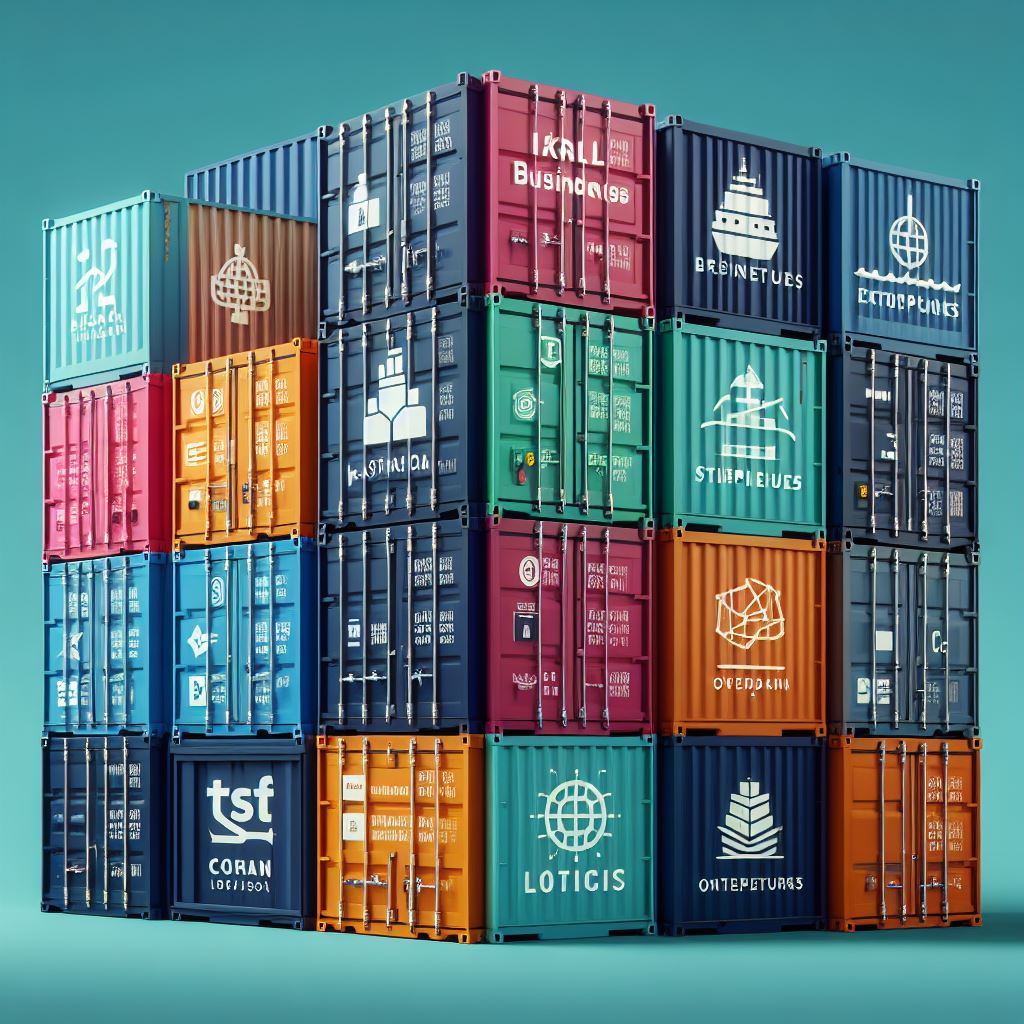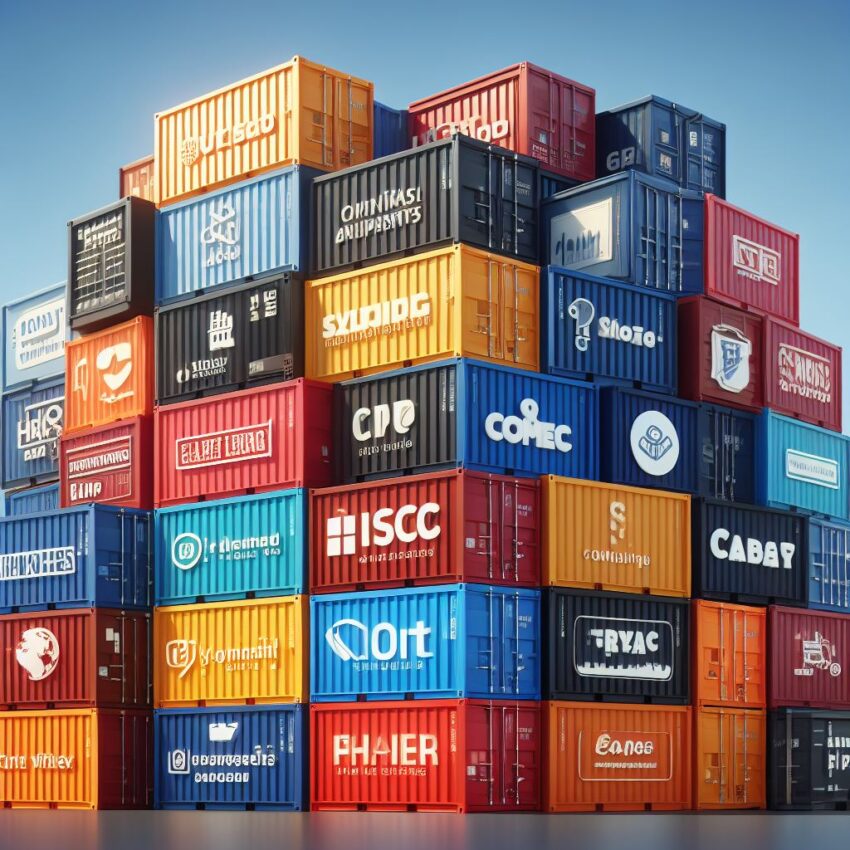 The democratization of international trade represents a significant shift. Previously dominated by conglomerates with extensive resources, global markets now lay within reach of nimble, small enterprises thanks to one transformative development: container shipping. This change has leveled the competitive playing field and fostered a new era of growth and opportunity for small business owners.
The democratization of international trade represents a significant shift. Previously dominated by conglomerates with extensive resources, global markets now lay within reach of nimble, small enterprises thanks to one transformative development: container shipping. This change has leveled the competitive playing field and fostered a new era of growth and opportunity for small business owners.
Unpacking the Revolution: Container Shipping Explained
Container shipping revolutionized the logistics industry by introducing a standardized method for transporting goods across the globe. Unlike traditional bulk shipping, which involved loading individual items onto ships without standardized containers, containerized trade utilizes secure, uniform containers that can easily be transferred between ships, trains, and trucks.
This innovation has significantly improved efficiency and reduced the risk of damage during transit. By standardizing the process, container shipping has minimized the time and labor required for loading and unloading cargo at ports. This has resulted in substantial cost savings for businesses involved in international trade.
Moreover, container shipping has facilitated globalization by making it easier for companies to export their products to foreign markets. With the ability to transport goods in large quantities safely and efficiently, businesses can expand their reach and access new opportunities around the world.
How Containerized Trade Empowers Entrepreneurs
For entrepreneurs eyeing expansion, the global market presents a vast array of opportunities and challenges. Container shipping has emerged as a key ally in this journey, offering several transformative advantages:
Reduced Shipping Costs
Container shipping’s efficiency has notably slashed entry barriers for global trade. Small businesses can now export affordably, bypassing hefty logistical expenses. Sharing container space, known as Less Than Container Load (LCL), optimizes shipping for small to medium-sized enterprises (SMEs). This streamlined process enables SMEs to compete effectively in international markets, fostering economic growth and diversification. With reduced shipping costs, businesses can allocate resources more efficiently, expanding their reach and tapping into new opportunities across borders.
Scalability
The modular design of containers offers businesses remarkable scalability. Whether shipping a few items or hundreds, containerized trade adapts to the varying needs of SMEs. This flexibility empowers companies to manage inventory and respond to market demands without overinvesting in logistics. With scalable shipping options, SMEs can grow their operations organically, seizing opportunities and optimizing resources as needed. This adaptability enhances competitiveness and fosters sustainable growth in the dynamic landscape of international trade.
Access to International Suppliers and Customers
Container shipping serves as a vital link between local producers and global markets, offering small businesses unprecedented access to international suppliers and customers. By shipping goods worldwide, SMEs can diversify their supply chain, cut costs, and reach a broader audience. This global reach enhances competitiveness and opens doors to new opportunities on the world stage. With containerized trade, businesses can expand their networks, forge strategic partnerships, and thrive in the interconnected landscape of international commerce.
Small Businesses Thriving Through Containerized Trade
Amplifying the theory are real-world examples of small enterprises harnessing the power of container shipping to carve out their niche in the global marketplace.
The journey of a small craft brewery transitioning from a local gem to an international sensation exemplifies the power of containerized trade. By embracing container shipping, the brewery expanded its reach, exporting its distinctive brews to Europe and Asia. This strategic move significantly boosted sales and extended its footprint across borders. The affordability and reliability of shipping containers played a pivotal role, safeguarding the brewery’s products during long-distance journeys and connecting them with a global audience. Through containerized trade, craft breweries can scale their operations and share their creations with enthusiasts worldwide, showcasing the potential for small businesses to thrive on the international stage.
The success story of a boutique fashion label highlights the transformative impact of container shipping on the global stage. Utilizing containerized trade, the brand expanded its presence into luxury markets across continents. Shipping their collections via containers ensured the preservation of quality and integrity, enabling them to rival established names in fashion capitals worldwide. This strategic move underscored the role of containerized trade in empowering smaller players to compete on a global scale. Through efficient logistics and reliable shipping methods, fashion brands can leverage container shipping to reach new markets and redefine industry standards.
Containerized Trade for SMEs
The horizon looks promising for small businesses aiming to broaden their reach through containerized trade. However, navigating this terrain requires knowledge, strategy, and foresight.
Embracing digitalization is pivotal for the future of container shipping. Small businesses must invest in technology for real-time tracking, streamlined customs clearance, and efficient supply chain management. Digital platforms offer SMEs visibility and control over their shipments, reducing uncertainties and enhancing decision-making capabilities. By harnessing digital tools, businesses can optimize operations, adapt to market changes swiftly, and stay competitive in the dynamic landscape of international trade.
Building strategic partnerships is essential for success in global trade. Small businesses need reliable logistics partners who grasp the intricacies of containerized shipping and can provide tailored solutions aligned with their growth goals. These collaborations offer SMEs the expertise and support necessary to maximize the opportunities presented by international markets. By forging strong relationships with trusted partners, businesses can navigate complexities, mitigate risks, and capitalize on emerging opportunities, ultimately driving sustainable growth and competitiveness in the global arena.
Adapting to environmental standards is imperative in the evolving landscape of global logistics. With regulations on carbon emissions tightening, small businesses must embrace eco-friendly practices in their shipping operations. This proactive approach enhances the reputation of SMEs in markets where sustainability is valued by consumers. By prioritizing sustainability, businesses can align with evolving regulations, reduce their carbon footprint, and contribute to a more environmentally conscious global supply chain.
Container shipping has unmistakably transformed the landscape of international trade, offering a lifeline to small businesses aspiring to make their mark on the global stage. By unlocking export opportunities, reducing operational costs, and fostering scalability, containerized trade empowers entrepreneurs to compete with larger entities like never before. Adopting and maximizing container shipping requires diligence, adaptation, and strategic planning, but the rewards — access to a boundless market and the chance to realize entrepreneurial dreams — are immeasurably worth it.


